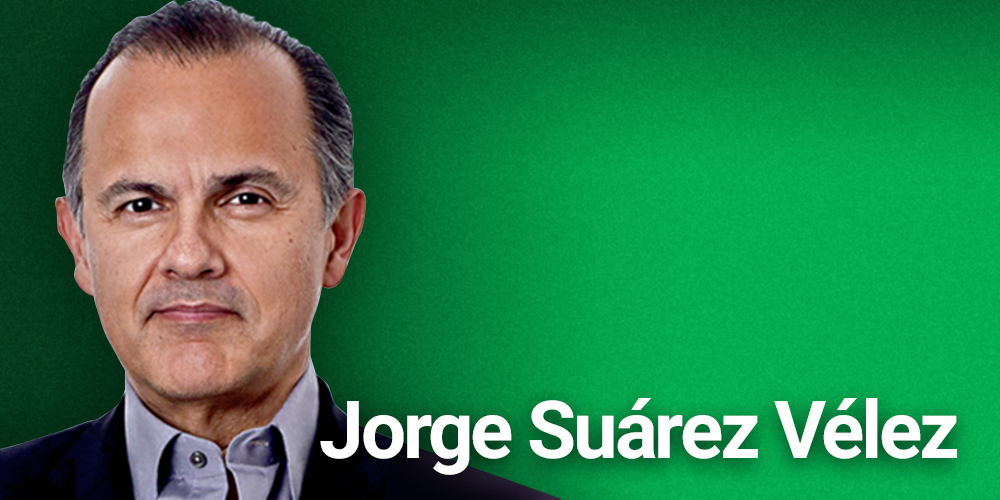 Crises test resilience and flexibility of societies and their leaders. They also test their ability to adapt to unexpected circumstances.
Crises test resilience and flexibility of societies and their leaders. They also test their ability to adapt to unexpected circumstances.
Some had said that it was fortunate that the Presidency of Donald Trump in the US had taken place in a stable environment, with strong economic growth and a historically solid labor market. That just changed. As expected, Trump’s reaction to the Covid-19 pandemic has been very poor. He has said that it is a conspiracy of his enemies to avoid his reelection. All populists seem cut from the same cloth. Fortunately, the US has a career civil service that Trump has weakened but not dismantled. Also, there are strong civil society organizations active in the public health area that have alleviated weaknesses left by US public institutions with reduced budgets.
The economic impact of the crisis will be tremendous: the UN estimates it at US $2 trillion. Unlike 2008, this is not a demand crisis where the economy can be stimulated by lowering interest rates or increasing the availability of credit. Countless supply chains have been disrupted because many products, like auto parts for example, are made in China and stopping production in that country stops the entire chain. This impacts vehicle production and commercial distribution in other countries.
In Mexico, the crisis is catching us unprepared. Using the newly created centralized healthcare system (known as INSABI) to deal with it is like putting a Band-Aid on a bullet wound. We are not even remotely ready for dealing with this pandemic.
Several things will hit Mexico all at once: the interruption of supply chains; the slowdown of the US economy; the collapse in oil prices caused by both the slump in demand and the fight between Saudi Arabia and Russia; and the collapse in tourism (right when Mexican beach resorts were getting ready to receive spring breakers).
During his first year in office, President Andrés Manuel López Obrador (AMLO) focused his attention and resources on “saving Pemex” the highly indebted state-owned oil company. But Pemex just lost US $35 billion in 2019 amidst a positive environment in oil markets. Now, the Mexican oil mix is selling for half (US $25 per barrel) of the price that the Mexican Finance Ministry budgeted it for this year (US $49 per barrel). Furthermore, the drop in prices will kill the profitability of efficient oil refineries around the world as their margins evaporate. It will just rip to pieces the old and inefficient Pemex refineries. The absurdity of the López Obrador government investing in oil refining capacity has been confirmed.
What about the old practice of hedging oil prices? It seems that due to government “austerity” (that’s how clumsiness is now called), Pemex oil price hedge programs only covered part of its production.
And the Stabilization Fund? Mexico saved for 18 years precisely to have resources to face a crisis like this one. But the López Obrador government ate half of it last year using it for current spending. The rainy day fund you saved in case your grandmother got sick ended up spent at parties with friends. And now that she is seriously ill there’s no money to cure her.
The irresponsibility of the López Obrador government is only comparable to its ineptitude. Mexico’s economy will contract this year. Pemex’s situation went from delicate to very serious. All the oil companies in the world reacted to the shock by cutting personnel, reducing expenses and canceling investment projects. I bet neither the Mexican Secretary of Energy, Rocío Nahle, nor the Pemex head, Octavio Romero, understand the magnitude of the blow to come. This is the same oil company that decided not pay US $5 million to those who hacked its systems last year. Again, due to government “austerity” Pemex did not pay for a computer protection software. An executive of a bank that lent money to Pemex told me that Pemex’s treasurer offers his personal email account to those who visit him, since the corporate email system is hacked (!).
López Obrador has to change course decisively. The abyss is in sight. There is US $100 billion of carry trade (foreign investment in debt instruments denominated in Mexican pesos), taking advantage of the high interest rate (7%). Last year, investors also obtained an 8% exchange rate profit from the peso’s revaluation. Now, the Mexican peso has moved against them. Investors will leave if they decide that the currency risk is excessive, causing a devaluation. There is no time to lose. AMLO can demonstrate that he learned from his mistakes and that he is capable of being the statesman he dreams of being. Last call.
* Jorge Suárez-Vélez is an economic and political analyst He is the author of The Coming Downturn of the World Economy (Random House 2011). A Spanish version of this Op-Ed appeared first in Reforma’s newspaper print edition. Twitter: @jorgesuarezv


